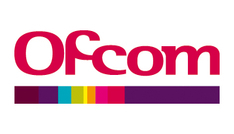Ofcom Wants 2G Spectrum Open To Mobile Broadband

Ofcom has begun a consultation process over opening up the 2G radio spectrum for 3G services
Communication regulator Ofcom has asked the government to ease the mobile broadband capacity crisis by making 2G spectrum available for 3G services – and launched a four week consultation process on its ideas.
Ofcom wants to relax the licences on the 900MHz and 1800MHz radio spectrum bands, which currently require operators to deliver old 2G services there, instead of using it to meet the high demand for 3G mobile broadband capacity. The regulator hopes to help operators meet demand and help consumers get a better service.
“Yesterday we published advice to the Government about the consumer benefit over 3G services over 2G spectrum,” an Ofcom spokesman told eWEEK Europe UK. “Today we have published a four week consultation process on the matter.”
Will it affect competition?
At the moment, the 900MHz band is owned by Vodafone and O2, whereas the 1800Mhz band is owned by Everything Everywhere, the entity now controlling Orange and T-Mobile.
 Ofcom has told the Government that freeing up the licence rules “is likely to bring significant benefits to consumers and is unlikely to result in a material distortion of competition,” the regulator said. “Therefore, Ofcom’s advice is that 2G spectrum should be made available for 3G mobile services as soon as possible.”
Ofcom has told the Government that freeing up the licence rules “is likely to bring significant benefits to consumers and is unlikely to result in a material distortion of competition,” the regulator said. “Therefore, Ofcom’s advice is that 2G spectrum should be made available for 3G mobile services as soon as possible.”
The proposal has been published and opened to consultation, said the regulator. “This is in preparation for and subject to the Government’s expected Direction to Ofcom on mobile spectrum, which will amongst other things, require Ofcom to vary the existing 2G licence in this way.”
Ofcom said that it believes that allowing this use is likely to bring significant benefits to consumers in terms of higher mobile broadband speeds, improved in-building coverage and wider coverage of rural areas.
Technology-neutral licences
The UK has been wrestling how to go about the process of allocating its free spectrum for a while now. Ofcom now has a policy of “technology neutral” licences, which would allow licence holders to use any appropriate technology in their spectrum, subject to international hamonisation, so this kind of consultation will only apply to older licences, such as those for 2G mobile phone services.
Future licences will include two chunks of radio spectrum, some around 2.6GHz which was originally planned for use by 3G mobile services, and some around 800MHz. Auctions for these licences have been planned for some time, but have run aground because of political indecision, and blocking moves by operators.
Last month Ofcom said that it was seeking to raise the limit of 3G broadcasting power, because mobile users in certain areas are still struggling to gain access to a decent 3G signal. If successful, it would mean that mobile operators will be able to throw out a more powerful 3G signal that should in turn provide better coverage and signal strength.
Data Strain
Mobile networks are increasingly feeling the data strain, as evidenced by the network failures of O2 last Christmas, for which the operator had to make a public apology. Analyst firm Informa warned in October 2009 that mobile data traffic is set to increase 25 fold by 2012, and said that mobile operators needed to take action in order to prevent imminent data traffic jams.
And matters are only going to get worse, with mobile users already struggling to get a decent 3G signal indoors, which has led Vodafone for example to offer its customers a femtocell that will provide a strong indoor 3G signal.
The European Commission is pushing member states to harmonise their efforts to free up the spectrum previously used by terrestrial TV, to support wireless broadband. In May it agreed on rules to free up of spectrum in the 800MHz band which should make it easier for European countries to coordinate their efforts and allow wireless broadband devices to operate across the region.